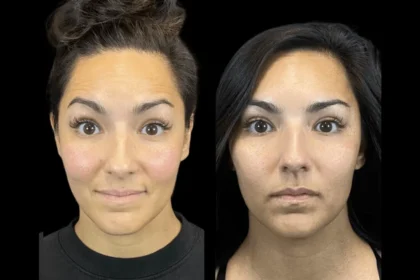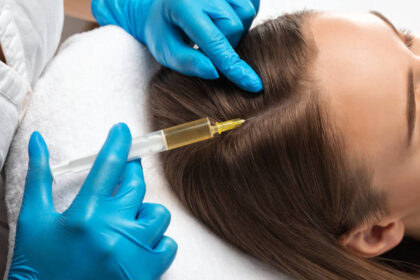It only takes a second—an accidental elbow, a fall, or a sports collision—and suddenly your tooth is no longer where it should be. A knocked-out tooth is a true dental emergency, and how quickly you act can determine whether it can be saved.
In moments like these, knowing what to do immediately and where to turn for help in Birmingham can make all the difference.
First Few Minutes: What You Do Matters Most
When a tooth gets knocked out (also called avulsion), every minute counts. Ideally, it should be repositioned within 30 minutes to give it the best chance of survival. Delaying even by an hour can drastically reduce the chances of successful reinsertion.

What you should do right away:
- Pick up the tooth by the crown, never the root
- Gently rinse it if dirty—do not scrub or remove any tissue
- Try to place it back in the socket if possible
- If not, store it in milk or saliva (not water) to keep it moist
- Avoid touching or disturbing the root
- Call an emergency dentist immediately, explaining it’s a knocked-out tooth
These actions can buy crucial time until you reach professional care.
Why Immediate Help from an Emergency Dentist in Birmingham Matters
Knocked teeth aren’t just painful—they come with risks of nerve damage, bone trauma, and infection. A skilled emergency dentist in Birmingham will evaluate the injury and act quickly to stabilise or save the tooth if possible.
Here’s how they can help:
- Assess the damage using imaging and visual inspection
- Reposition the tooth or determine if reimplantation is viable
- Stabilise with a splint, securing it to neighbouring teeth
- Clean the socket and the surrounding area to prevent infection
- Prescribe antibiotics if necessary
- Monitor healing, especially in the first 1–2 weeks
Even if the tooth cannot be saved, your dentist can guide you through restorative options to preserve your smile.
The Hidden Damage: It’s Not Always Just One Tooth
When trauma occurs, the visible injury is often only part of the problem. The impact may have also affected surrounding teeth, gums, or even your jaw. That’s why follow-up care is crucial.
Additional issues that often accompany a knocked-out tooth:
- Hairline cracks in nearby teeth that may worsen over time
- Gum injury, leading to infection if not cleaned and treated
- Loosened teeth, which may not feel unstable immediately
- Bone bruising or fracture
- Soft tissue injuries, such as cuts to the lips or tongue
- Delayed nerve pain or sensitivity, appearing days later
Prompt and thorough evaluation ensures nothing gets missed during initial treatment.
How a Hygienist in Birmingham Helps You Recover—and Prevent Future Incidents
While a hygienist in Birmingham isn’t the person you’ll see for emergency reinsertion, they play a vital role in both recovery and prevention. Once healing begins, hygienists can help maintain a clean, infection-free environment that supports long-term success.
Benefits of hygienist support after trauma:
- Professional cleaning around injured areas to reduce bacterial buildup
- Monitoring gum healing and inflammation
- Guidance on oral hygiene techniques, especially around sensitive areas
- Dietary advice to avoid irritating the injury
- Fitting or recommending protective gear, like custom mouthguards
- Tracking progress, flagging issues early before they escalate
Your hygienist becomes a key part of ensuring the affected area stays healthy and complication-free.
Table: Tooth Knocked Out vs. Chipped Tooth – What to Do
| Condition | Immediate Action | Risk Level | Requires an Emergency Dentist in Birmingham? |
| Completely knocked-out tooth | Rinse, reinsert or store in milk, call the dentist | High | Yes |
| Partially dislodged tooth | Avoid moving it, bite gently on gauze, call the dentist | Moderate to high | Yes |
| Chipped tooth (no pain) | Rinse mouth, keep area clean, schedule a non-urgent visit | Low | Not always |
| Chipped tooth (with pain or nerve exposure) | Avoid food on that side, cover sharp edges, and call the dentist | Moderate | Yes |
Sports & Accidents: Why Prevention Is Always Better
Knocked-out teeth are most common during physical activity, especially in contact sports. Fortunately, many of these incidents are preventable with simple precautions.
Preventive steps to reduce risk:
- Wear a custom-fitted mouthguard, especially in sports
- Avoid chewing hard objects, like ice, pens, or bottle caps
- Address grinding or clenching habits, which weaken enamel
- Use seatbelts and protective headgear when necessary
- Supervise children during rough play, especially on hard surfaces
- Maintain regular check-ups, ensuring previous restorations stay strong
Taking simple measures today can help you avoid painful surprises tomorrow.
Why Timing Makes the Difference Between Saving and Replacing a Tooth
When it comes to a knocked-out tooth, speed is more important than most people realise. Delaying care—even by 30 to 60 minutes—can reduce the chances of successful reinsertion. That’s because the cells on the root surface begin to die once the tooth is out of its socket.
Here’s what happens the longer you wait:
- Within 15 minutes: Best-case scenario—highest chance of successful reinsertion
- After 30 minutes, the Survival rate begins to drop
- After 60 minutes, Root surface damage makes reinsertion less likely
- After 2 hours: the Tooth often can’t be saved and may need replacement
- Beyond 24 hours: Risk of infection or complications increases
That’s why contacting an emergency dentist in Birmingham immediately is your best chance of saving the natural tooth.
Long-Term Care After Tooth Trauma: What Happens Next?
Even after a knocked-out tooth is treated, recovery doesn’t end in the chair. You’ll need follow-up care to make sure healing is on track and that the surrounding teeth and gum tissue remain healthy. This is where post-traumatic dental planning becomes essential.

Ongoing support may include:
- Splint removal, typically after 1–2 weeks
- Follow-up X-rays, to check root health or reattachment
- Monitoring nerve vitality, especially in younger patients
- Root canal treatment, in some cases, depending on trauma severity
- Check-ups with a hygienist in Birmingham to maintain gum health
- Restorative options, like implants or bridges, if the tooth can’t be saved
A knocked tooth can heal well with the right combination of urgent care and structured follow-up.
Conclusion
Tooth injuries are alarming, but the right action at the right time can make all the difference. A knocked-out tooth isn’t something to observe and wait on. Whether it’s a child’s front tooth or your own, prompt care gives you the best shot at saving it. With fast, dependable support from EDP Group in Birmingham, you’ll never have to face a dental emergency alone. Your smile deserves urgent attention—and expert care is just around the corner.



